Global Politics - Realist thinkers
Global Politics - Realist thinkers
Thucydides (ca. 460–406 BCE) , classical realist
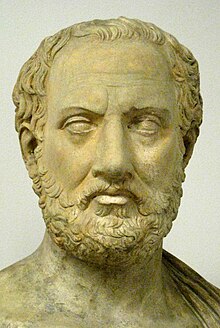
Background
Greek historian with philosophical interests. Thucydides’ great work The History of the Peloponnesian War recounts the struggle between Athens and Sparta for control of the Hellenic world, which culminated in the destruction of Athens, the birthplace of democracy.Key works :
- The History of the Peloponnesian War
Main ideas :
- Thucydides trap : (Thucydides himself never talks of a “trap.”) The fears of a rising power spark war fervour in an already established power, leading to conflict as it is seen as the only solution to the growing imbalance of power. More times than not, the dominant power comes out on top but at a catastrophic cost which signals the end of their power and the rise of another in its place.
- Melian Dialogue : (A section of conversation between the Melians and Athenians in The Peloponnesian War where the Athenians ignore their wish to remain neutral) Thucydides showed how power politics is indifferent to moral argument, states are basically amoral.
- Negative view of human nature : argued that war is caused by ‘the lust for power arising from greed and ambition’.
Niccolo Machiavelli , classical realist
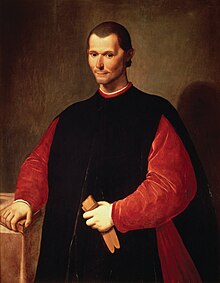
Background
Niccolò di Bernardo dei Machiavelli was an Italian diplomat, politician, historian, philosopher, humanist, writer, playwright and poet of the Renaissance period. For many years he was a senior official in the Florentine Republic, with responsibilities in diplomatic and military affairs. He wrote his best-known work The Prince in 1513, having been exiled from city affairs.
Key Works
- The Prince
- The discourses
Main Ideas
- Machiavelli’s theory of politics was based on a darkly negative model of a changeless human nature. In his view, humans are ‘insatiable, arrogant, crafty and shifting, and above all 'malignant, iniquitous, violent and savage’
- political life is always characterised by inevitable strife, political leaders should be prepared to contravene conventional morality in order to protect a political community that is under threat
- The adjective ‘Machiavellian’ (fairly or unfairly) subsequently came to mean ‘cunning and duplicitous’
Carl Von Clausewitz (1780–1831) , classical realist
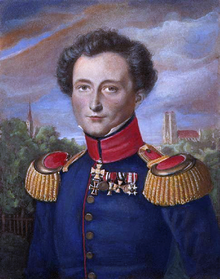
Background
Prussian general and military theorist. The son of a Lutheran Pastor, Clausewitz
entered the Prussian military service at the age of 12, and achieved the rank of Major General by the age of 38. Having studied the philosophy of Kant (see p. 16) and been
involved in the reform of the Prussian army, Clausewitz set out his ideas on military
strategy in On War.
Key Works
- On War [1832]
Main Ideas
- In Clausewitz’s view, all wars have the same ‘objective’ character: ‘War is merely a continuation of politics (or policy) by other means’, War is therefore a means to an end, a way of forcing an opponent to submit to one’s will
- war is simply an instrument of policy
- Both war and peace are characterised by the rational pursuit of self-interest, and therefore by conflict; the only difference between them is the means selected to achieve one’s goals
Hans Morgenthau (1904–80) , classical realist
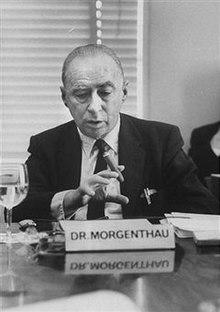
background
German-born, US international relations theorist. A Jewish refugee from Nazi
Germany, Morgenthau arrived in the USA in 1937 and started an academic career
which led to him being dubbed the ‘Pope’ of international relations.
key works
- Politics Among Nations (1948)
main ideas
- Morgenthau placed an emphasis on the ‘art of statecraft’, arguing that the practical conduct of politics should be informed by the ‘six principles of political realism’
- He set out to develop a science of ‘power politics’, based on the belief, clearly echoing Machiavellian Hobbes, that what he called ‘political man’ is an innately selfish creature with an insatiable urge to dominate others
- Morgenthau advocated an emphasis on ‘realistic’ diplomacy, based on an analysis of balance of power and the need to promote the national interest
- wars should only ever be fought if vital national interests are at stake, the decision to wage war being based on something like a cost–benefit analysis of its outcomes in terms of strategic interests - consequently he opposed the Vietnam war.
Kenneth Waltz (born 1924) , neorealist
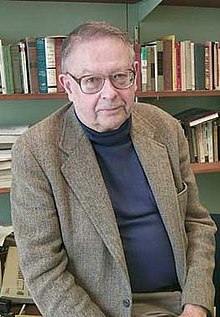
Background
Waltz’s analysis was closely
associated with the Cold War and the belief that bipolarity is more stable and
provides a better guarantee of peace and security than does multipolarity.
Key works
- From the 1970s onwards, new thinking within the realist tradition started to emerge, which was critical of ‘early’ or ‘traditional’ realism. The key text in this process was Kenneth Waltz’s The Theory of International Politics (1979).
Main Ideas
- For Waltz (see p. 60), theories about international politics could be developed on ‘three levels of analysis – the human individual, the state and the international system’ - a criticism of classical realism which could not explain behaviour above the state.
- Using ‘structural realism’, Waltz explains the behaviour of states in terms of the structure of the international system
- Ignoring human nature and the ethics of statecraft, Waltz used systems theory to explain how international anarchy effectively determines the actions of states, with change in the international system occurring through changes in the distribution of capabilities between and amongst states
- international anarchy tends towards conflict rather than cooperation
John Mearsheimer (born 1947) neorealist , offensive realist

Background
US political scientist and international relations theorist. Mearsheimer is one of the
leading exponents of offensive realism and a key architect of neorealist stability
theory. He wrote during the cold war and has been a vocal critic of US policy towards China,
believing that this is strengthening China, ultimately at the expense of the USA.
Key Works
- Back to the future (1990)
- The Tragedy of Great Power Politics (2001)
Main Ideas
- In 'Back to the Future' (1990) he argued that the Cold War had been largely responsible for maintaining peace in Europe (as a multi polar world system gave rise to WW1 and WW2), warning that the end of Cold War bipolarity created the prospect of increased international conflict
- In The Tragedy of Great Power Politics (2001), Mearsheimer argued that, as it is impossible to determine how much power is sufficient to ensure survival, great powers will always seek to achieve hegemony, behaving aggressively when they believe they enjoy a power advantage over their rivals
Comments
Post a Comment